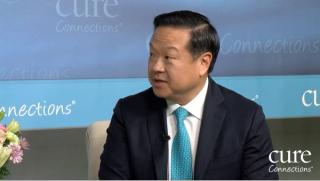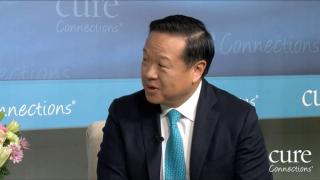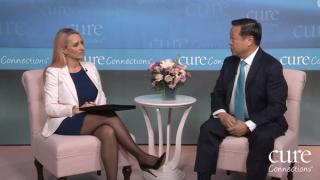
Lung Cancer
Latest News
Latest Videos

More News

The members of my lung cancer support group recently came up with some responses for when people ask us, "So you have lung cancer — did you smoke?"

Don’t waste your cancer.

This regular approval provides Gavreto as a treatment option for patients with metastatic RET fusion-positive non-small cell lung cancer.

Tecentriq, compared with chemotherapy, improved survival while maintaining quality-of-life in patients with non-small cell lung cancer considered ineligible for platinum-based chemotherapy.

I’ve heard of many stories of friendships dwindling after someone has been diagnosed with cancer. One thing about it is that I can relate.

Researchers conducting this trial will compare zipalertinib plus chemotherapy with chemotherapy alone in patients with previously untreated, locally advanced or metastatic non-small cell lung cancer with the EGFR exon 20 insertion mutation.

Patients with non-small cell lung cancer who recently received surgery are more susceptible to wildfire smoke exposure, worsening their overall survival rate.

After being diagnosed with lung cancer, I found a group of patients with a similar diagnosis to me. Together, we protect each other like the clown fish and anemone at the bottom of the sea.
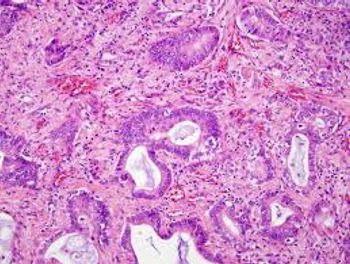
The treatment combination of Rybrevant and chemotherapy significantly improved progression-free survival rates for patients newly diagnosed with metastatic NSCLC with EGFR Exon 20 insertion mutations.

A randomized clinical trial, CHEERS, determined that the combination of stereotactic body radiotherapy (SBRT) and immune checkpoint inhibitors (ICIs) were ineffective as treatment for patients with advanced solid tumors.

I think it was Theodore Geisel (aka Dr Seuss) who said “Don’t cry because it’s over, smile because it happened.”
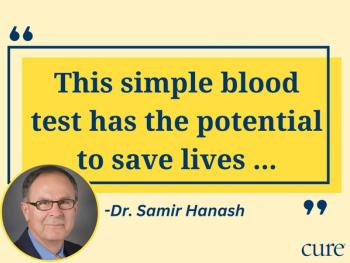
A blood test protocol proved to be more effective than US Preventative Services Task Force criteria for predicting which patients are at a higher risk of dying from lung cancer.

Patients with both metastatic non-small cell lung cancer and preexisting diabetes mellitus have different outcomes depending on treatment and treatment combinations, particularly with Keytruda and chemotherapy

Patients 65 years and older with NSCLC and undergoing treatment with immunotherapy, chemotherapy and/or targeted therapy were more likely to have worse survival outcomes and declines in activity of daily living.

Patients with stage non-small cell lung cancer tended to have better outcomes when Opdivo was added to their pre-surgical chemotherapy treatment.

The use of Reqorsa and Tecentriq may increase prognosis for patients with extensive-stage small cell lung cancer.

A chemotherapy shortage is resulting in altered treatment plans for many patients with cancer. CURE® spoke with experts about what that means for patients — and what they can do about it.

Treatment with a CAR-M cell therapy plus Keytruda is being assessed in a phase 1 study in patients with HER2-overexpressed tumors.

Studies show that eating a high-fat meal with Alecensa can benefit patients with lung cancer throughout recovery.
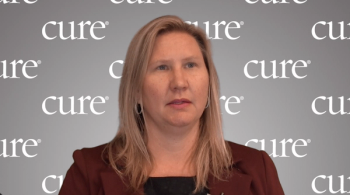
An expert discusses the ongoing SPARK trial for KRASG12-mutant non-small cell lung cancer, and what she hopes for the future of this patient population.

A survey of cancer centers found that the majority of large centers are facing cisplatin and carboplatin shortages, and some are changing or delaying treatment because of it.

From Shannen Doherty’s announcement that her breast cancer spread to her brain to a nonprofit being established in memory of the late YouTuber, Technoblade, here’s what’s happening in the oncology space this week.

Patients with non-small cell lung cancer who cleared 50% or more of cancerous DNA from their blood by their fourth treatment cycle tended to have better outcomes on maintenance therapy, research showed.

Tumor treating fields therapy “is a potentially paradigm-shifting new treatment modality” for metastatic non-small cell lung cancer, says Dr. Ticiana Leal.

Adding Keytruda to pre-surgical chemotherapy then giving it again after surgery improved event-free survival and pathologic complete response in patients with early-stage lung cancer.






